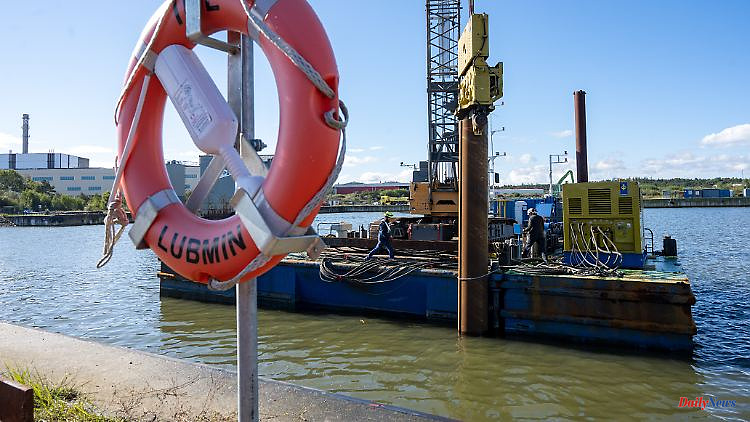It is more than 280 meters long and can temporarily store liquefied natural gas, heat it up and convert it back into gas: the "Neptune" is the first tank storage ship to head for Germany. However, at least one stopover is required before it can be used.
The first tank storage ship for liquefied natural gas is on its way to its place of use in Lubmin on the German Baltic Sea coast. The "Neptune" should be used as a floating terminal as soon as possible and convert imported, heavily cooled liquefied natural gas back into the gaseous state. Before it arrives in Western Pomerania, the ship will make at least one stopover, among other things to drain fuel reserves, said the head of the supervisory board of the project operator Deutsche Regas, Stephan Knabe. These would no longer be needed in Lubmin.
Coming from Wales, the more than 280-meter-long "Neptune" was in the western part of the channel between England and France, according to ship tracking services on the Internet on Tuesday evening. It will take a few more days for the ship to reach the Baltic Sea, said Knabe.
The "Neptune" can temporarily store liquefied natural gas, heat it up and convert it back into gas. The floating terminal is to be moored in the industrial port of Lubmin and connected to the gas pipeline network in the immediate vicinity. Smaller ships are to take the liquefied natural gas from a storage ship on the Baltic Sea, which in turn is to be supplied by tankers. The smaller ships will then transport the liquefied natural gas through the relatively flat Greifswalder Bodden to the Lubminer Hafen to the "Neptune".
"We will be technically ready on December 1st," said Stephan Knabe. However, approvals from the responsible state office and the Federal Network Agency are still pending. The application documents for public participation are currently available. When replacing Russian pipeline gas, Germany relies, among other things, on liquefied natural gas delivered by ship and is building several terminals for imports.












